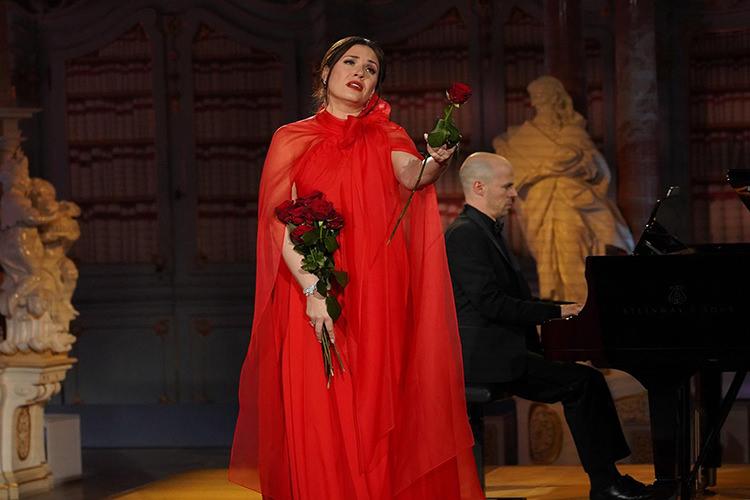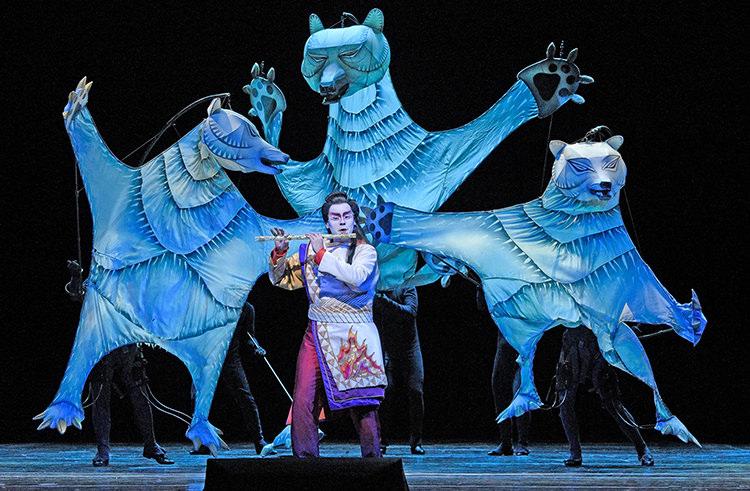The Magic of Opera
Opera is an art form that ties together every aspect of the human condition. It is a musical, social, and emotional experience that engages attendees and listeners from the minute they step in line at the opera house. While typically viewed as an interest limited to the upper class, operas tend to attract a true mix of dedicated fans who find intrinsic value in the music and narrative, and who were inspired to delve deeper into books, records, and performances after an initial eye-opening experience.
While sitting in an audience surely adds to the captivation and sense of community, it is surely possible to experience the full range and vulnerability of some of today’s most talented voices from home. Whether you are a seasoned fan of classical music or you are just beginning to be acquainted, you will be touched by the raw emotion that can be projected from a human voice.
The Magic of Opera
An opera begins long before the curtain goes up and ends long after it has come down. It starts in my imagination, it becomes my life, and it stays part of my life long after I've left the opera house.
-Maria Callas
Like most of our experiences with music, the allure of the opera is, at first, largely emotional as a novice opera fan, you may be struck by the soaring voices and narratives of love and loss, and feel an urge to dive deeper into the rich culture surrounding the production. Much of that culture has to do with the acquisition of taste and knowledge over time. When a group of dedicated opera-goers in Buenos Aires was interviewed about their initiation into the opera world, “most of the interviewed fans described the intense attraction they felt the first time at the opera house as something explosive… that was waiting for them and that they had been waiting for their whole lives (as in ‘love at first sight’), which had intense and enduring physical effects” (Benzecry, 2009). Amongst those who have had these operatic revelations, it is understood that the more you learn opera – in all of its multi-disciplinary facets – the more you can find joy in it.
Opera has been giving us joy for over 400 years. From its birth in Florence, Italy with Jacobo Peri’s Daphne, it has evolved from a formal entertainment for royalty into the monumental works of grand opera that began to emerge in the Romantic period and which continue to be performed to this day (SFOpera - A Brief History of Opera, n.d.). Carmen may be one of the most well-known of the grand operas, written by Georges Bizet and first performed in 1875 – with Célestine Galli-Marié singing the famous mezzo-soprano aria Habanera for its first audience (The Story Of Georges Bizet’s Carmen, n.d.).

Carmen tells the dramatic story of the relationship between an obsessed army officer and a free-spirited girl, drawing in viewers with the combination of a genius score and an intense story. While we may have never experienced such drama in our own lives, operas like Carmen bring us all together by both “condensing life and blowing it up,” and conveying fierce, deep feelings in a digestible way with the help of beautiful music (Fonseca-Wollheim, 2020).
Those fierce feelings are timeless, and audiences can still relate to this day, with sopranos like Elina Garanča continuing the legacy of Carmen and other classic operas.
Striking Sopranos
If you haven’t fully gotten your foot in the door of the opera world, it’s important to note that voices are generally categorized into sopranos, mezzo sopranos, contraltos, tenors, baritones, and basses. Sopranos have the highest range, and they are typically the stars of the show. They can be further divided into three main groups: coloratura, lyric, and dramatic (Understanding Different Voice Types, n.d.). Some of the most celebrated of today’s sopranos include Barbara Bonney, Angela Gheorghiu, Kathleen Battle, and Diana Damrau, the last of whom is a German lyric and coloratura singer who has been gracing the worlds most renowned opera houses for over 20 years. Aside from some of Damrau’s signature roles at the Metropolitan Opera and the Royal Opera House, she has recorded a handful of gorgeous arias particularly of note is her soaring voice in “Et Incarnatus Est” from Mozart’s Mass in C minor, K. 427, effortlessly embodying the love Mozart felt for his wife when he wrote it (“5 Minutes That Will Make You Love Sopranos,” 2020).

Cecillia Bartoli, Anna Netrebko, Olga Borodina, Susan Graham, and Sonya Yoncheva have all also been hugely successful. In Bartoli’s 2019 album Farinelli, she pays tribute to the Baroque castrato’s incredible range and breath control while simultaneously commenting on the history of gender in the genre with a bold album cover in which she sports a dark beard.
Radio Art: Today’s Sopranos, From Home
These voices – and countless more – can be found on Radio Art’s new channel, “Today’s Sopranos.” While live shows may be on hold for a while, opera will always be there to guide us through life’s most complicated relationships, and to make us feel the depth of love, loss, and history through classic arias and modern renditions. Opera is a uniquely interdisciplinary genre that brings together equally unique individuals in its commentary on the harsh (and beautiful) realities of human existence. It is that uniqueness that will carry the genre far into the future.
Our website respects the intellectual property rights of creators, as well as the music rights of authors and composers.
The musical works are provided solely for the private use of each visitor/user
and any further exploitation of them in any way is prohibited without prior permission from AUTODIA and EDEM Rights.
Radio Art is fully approved by the Greek Collective Rights Organizations | AUTODIA | EDEM Rights
Copyright © RABS - Radio Art Broadcasting services Ltd. All rights reserved.
The Art of Relaxing & Meditation Music
Privacy Policy & TOS









